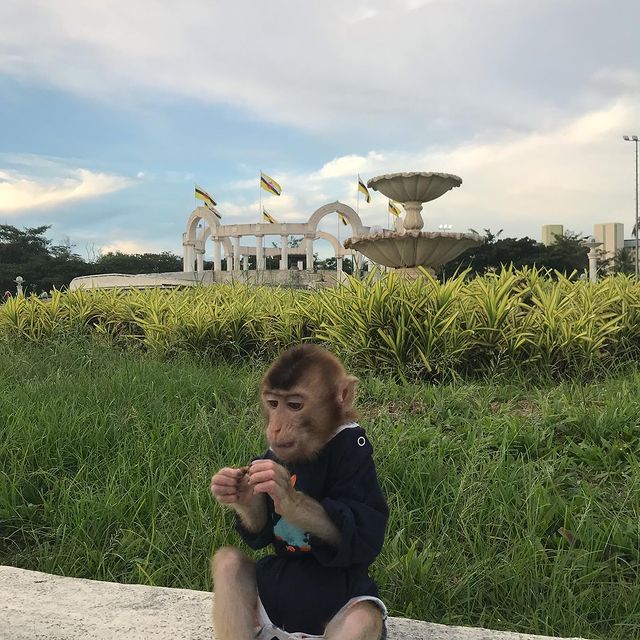
Introduction
Welcome back to the Stephen Monkeys blog! Today, we are going to explore a critical yet often overlooked aspect of monkey life: their role in maintaining healthy ecosystems and promoting biodiversity. Monkeys are not just fascinating creatures; they are also vital contributors to the health of the environments they inhabit. Let’s delve into how these intelligent primates influence their ecosystems and the broader implications for biodiversity.
Seed Dispersal: The Gardeners of the Forest
One of the most important ecological roles that monkeys play is as seed dispersers. Many monkey species consume a variety of fruits and other plant materials. As they travel through their habitats, they excrete the seeds of these plants in different locations, often far from the parent tree. This process, known as seed dispersal, is crucial for the regeneration of forests and the maintenance of plant diversity.
How Seed Dispersal Works
Monkeys consume fruits and digest the fleshy parts, leaving the seeds intact. When these seeds are excreted, they are often deposited in nutrient-rich feces, providing a ready-made fertilizer that enhances their chances of germination and growth. By spreading seeds across wide areas, monkeys help to ensure that new plants can grow in different locations, reducing competition among plants and promoting a diverse and resilient forest ecosystem.
Examples of Seed Dispersal by Monkeys
- Spider Monkeys: Known for their frugivorous diet, spider monkeys play a significant role in the dispersal of large seeds in tropical forests. Their ability to travel long distances makes them excellent dispersers of seeds, helping to maintain the genetic diversity of plant populations.
- Howler Monkeys: These monkeys consume a variety of fruits and leaves, contributing to the dispersal of seeds for numerous plant species. Their loud calls help to establish their presence in the forest, indirectly aiding in the protection of their feeding areas from other groups.
Predators and Prey: Balancing the Ecosystem
Monkeys also play a role as both predators and prey within their ecosystems, helping to maintain a balance among different species. As predators, they consume insects, small animals, and even eggs, contributing to the control of these populations. As prey, they provide a food source for larger predators, creating a dynamic and interconnected food web.
Monkeys as Predators
- Insectivorous Monkeys: Species such as tamarins and marmosets consume a significant number of insects, helping to control pest populations. This behavior can have positive effects on agriculture and forest health by reducing the number of harmful insects.
- Omnivorous Monkeys: Capuchin monkeys, known for their varied diet, eat insects, small vertebrates, and bird eggs. This predatory behavior helps to regulate the populations of these species, maintaining a balanced ecosystem.
Monkeys as Prey
Monkeys are prey for a variety of predators, including big cats, birds of prey, and snakes. The presence of monkeys in an ecosystem supports the survival of these predators, contributing to the overall biodiversity and health of the environment. The interactions between monkeys and their predators create a complex web of relationships that sustains the ecosystem.
Ecosystem Engineers: Shaping Habitats
Monkeys are often considered ecosystem engineers because their activities can physically alter their environments in ways that benefit other species. By creating trails, modifying vegetation, and even influencing soil composition through their feeding and nesting behaviors, monkeys help to shape their habitats.
Trail Creation
Monkeys create trails as they move through their habitats, which can be used by other animals as well. These trails facilitate the movement of various species, promoting greater interaction and access to resources. In some cases, these trails can even influence the patterns of plant growth by creating open spaces where sunlight can reach the forest floor.
Vegetation Modification
Through their feeding habits, monkeys can influence the composition and structure of vegetation. For example, by consuming certain plants and pruning others, they can shape the growth patterns of the forest. This behavior can create a mosaic of different plant species and age classes, enhancing habitat complexity and biodiversity.
Conservation Implications
Understanding the ecological roles of monkeys highlights the importance of conserving these animals and their habitats. Habitat loss, hunting, and the illegal pet trade pose significant threats to monkey populations and, by extension, to the health of ecosystems that rely on them. Conservation efforts must prioritize the protection of monkey habitats and the enforcement of laws against hunting and trade.
Supporting Conservation Efforts
- Habitat Protection: Protecting the natural habitats of monkeys is crucial for their survival and the health of ecosystems. Establishing and maintaining protected areas, such as national parks and wildlife reserves, can help to safeguard these environments.
- Community Engagement: Involving local communities in conservation efforts can foster a sense of stewardship and provide economic benefits through ecotourism and sustainable resource use. Education and awareness programs can also promote understanding of the importance of monkeys and their roles in ecosystems.
Conclusion
Monkeys are indispensable members of their ecosystems, playing key roles in seed dispersal, predation, and habitat modification. Their activities contribute to the health and diversity of the environments they inhabit, highlighting the interconnectedness of all species within an ecosystem. By supporting monkey conservation efforts, we not only protect these fascinating animals but also ensure the continued health and resilience of the ecosystems they help to sustain. Thank you for joining us on this journey of discovery at Stephen Monkeys, and stay tuned for more insights into the world of monkeys in our future blog posts!



